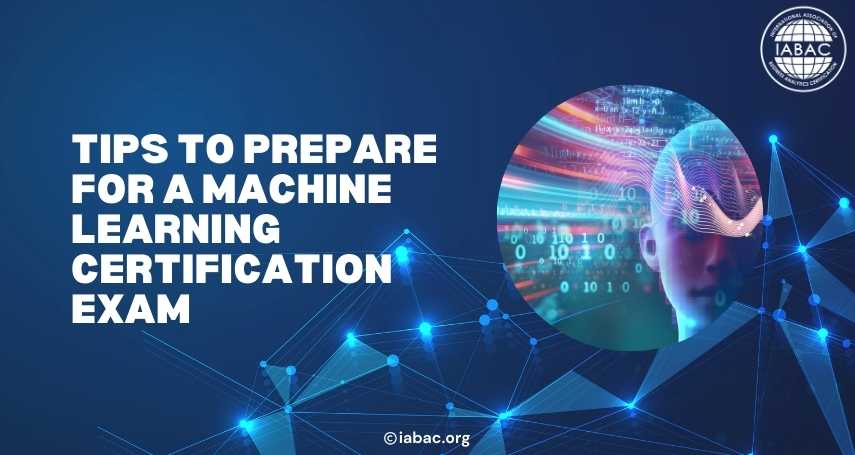


Master your Machine Learning certification with practical tips, study strategies, and hands-on practice.
In the technologically advanced world of today, machine learning has emerged as one of the most in-demand competencies. Getting certified in machine learning can greatly improve your employment prospects, regardless of whether you are a student, working professional, or an aspiring AI specialist. The IABAC Machine Learning Certification is a well-known certification that attests to your proficiency in machine learning principles and applications.
It may initially seem difficult to prepare for a machine learning certification exam, but with the correct method and approach, you can make the procedure doable and even pleasurable. We’ll go over useful advice and techniques to help you get ready with assurance and efficiency.
Understanding the exam’s structure is essential before you begin studying. Typically, certification tests consist of several sections that assess different aspects of machine learning. These could consist of:
You might focus on topics that are more heavily weighted and prioritize your study time by being aware of the exam structure.
The secret to successful preparation is a well-structured study schedule. Determine how many weeks or months you have left until the test begins. Next, divide your study timetable into manageable pieces.
Long study sessions are not as important as consistency. Cramming is frequently less successful than brief, focused sessions.
A few basic ideas form the foundation of machine learning. Since these subjects make up the majority of certification tests, make sure you understand them completely:
Instead of learning definitions by heart, concentrate on understanding the logic behind these ideas. This will make it easier for you to take on real-world difficulties.
Theory is only one aspect of machine learning; real-world applications are important. The majority of tests assess your capacity to apply ideas to real data sets.
You can better understand the specifics of each algorithm and get ready for scenario-based test questions with hands-on practice.
Coding expertise, particularly in Python, is required for the majority of certification tests. Make sure you feel at ease with:
Regular coding can improve your self-worth and reduce test-day anxiety.
Exam preparation requires completing practice questions and taking practice exams. They assist you:
Make time for practice exams at least once a week. Examine your errors carefully and review the relevant concepts after every test.
Mathematics has a strong foundation in machine learning. Although you don’t have to be an expert in mathematics, you do need to have a strong understanding of some ideas:
A strong basis in mathematics will enable you to apply strategies to various situations and understand the workings of algorithms.
Selecting the appropriate study materials can significantly impact your readiness. Some of the suggested resources are:
To avoid confusion, concentrate on a small number of reliable sources instead of employing too many at once.
Although it is frequently disregarded, revision is essential for information retention. Create brief notes or flashcards for easy access while you’re studying. Pay attention to:
Frequent review increases confidence before the test and helps you retain information.
Effective time management is essential for both exam preparation and the real test. Here are some pointers:
Effective time management lowers stress and guarantees that you have studied all of the material required before the test.
Exams for machine learning certification, such as the IABAC Machine Learning Certification, are a great method to advance your career and verify your skills. It takes a combination of solid foundations, practical experience, and efficient study techniques to prepare for these tests.
You can effectively pass your certification exam by mastering the necessary concepts with commitment and a methodical approach. Get started early, practice regularly, and never stop learning. Your efforts will be rewarded, leading to fascinating prospects in data science and artificial intelligence.
